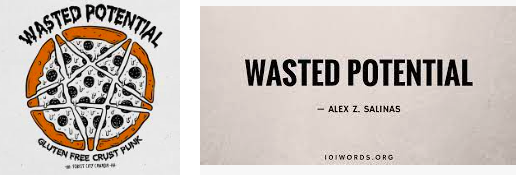The second collaboration between Saskatoon, Saskatchewan’s Factor and L.A.’s Awol One, this album is a crystal-clear example of why I’m simultaneously hopeful and yet totally disillusioned with modern rap music.
Most of the good will engendered on Owl Hours comes courtesy of Factor’s beat-making prowess. He’s a capable producer, able to deftly swing from blissful, synth-heavy arrangements to crafting tracks that combine the talents of an assembled group of live musicians and subtly-programmed drum loops. The first track is the former, a tight drum loop guiding a series of distorted synth-runs for a spare musical bed augmented by his own scratching on the song’s back end. Other cuts (like “Celebrate,” “Back Then”) boast minor key synths and softer sounds, one number late in the album coming across like a lost Postal Service number crafted with 808 snares. It’s a sophisticated, at times understated, palate that shows why rappers from xzibit to Busdriver have tapped Factor for tracks. Hell, one of the drum loops on “Official” sounds like it could’ve been pulled off one of Trent Reznor’s most industrial tracks (”Gave Up” from the Broken EP specifically).
Now: while the album’s two principle performers have a good chemistry and seem to be on the same page on most of these songs, that doesn’t mean this album is all highs. Trust me, there are lows.
I don’t want to take too much away from Awol based solely on these songs. He seems like a perfectly capable lyricist for the most part, but there’s something about his performance that makes it seem like he has something better to do than putting vocals down on tape. His raspy voice sounds almost detached, almost preoccupied on most of these songs. I don’t want to say bored, but I feel compelled to. Even when trying to explain his passion for music with a line like, “You don’t know what the rap life costs,” he comes off flat. The few moments where his voice really seems to fit are on “Brains Out,” a cast-off capital-h Hard Rapping track filled with braggadocio and misogynist posturing, and “Back Then,” which is an honest and relatable tale of love gone wrong. A sentiment that may be rote in rock music is far from it in rap and the tenuous singing voice displayed at the song’s beginning (which I’m assuming is Awol) perfectly displays how genuine the emotion of the tune is, how he wants to make his feelings known to this former lover even though it may be difficult. Its nice to see that vulnerability, especially because it keeps Factor in the spotlight. Unfortunately he gets overshadowed on several of the songs with guest vocalists, due simply to the fact that they seem to have a stronger vocal presence.
There are other tracks where the vocals and lyrics work a lot better, where they’re paired very well with Factor’s tracks (”Celebrate,” “Destination,” “Sunset Sandwich”). But I’m afraid there are a couple of moments that are too depressing for me to overcome.
First and foremost: I expect more from indie rappers than tracks like “Brains Out” and “Waste The Wine.” Maybe we’re on a different page but I feel like there are more than enough (re: any) songs in mainstream rap music that advocate slapping “bitches” on the ass, girls with big asses, fucking in a Mercedes, girls with big titties, girls with big-ass titties, ladies “juggling these motherfucking nuts” in their mouths, messing with groupies, being “hard” and shooting guns. That ground has been covered. I always hope that independent rappers will bring something new to the party, but these songs are awful retreads of “gangster” posturing that have no redemptive value. There’s simply no need for these staid themes of misogyny and violence. Thankfully Awol seems to stay away from those tropes for the most part, leaving them to unnecessary guest spots. But its kind of sad to see that element creep into the songs if that isn’t the featured rapper’s MO.
Also, can we just put a blanket ban on rappers saying, “Check the flow,” or any such derivative entreaty to listen to what they’re saying? It’s a fucking rap song; the “flow” is why people are listening. Asking is redundant.
In summation: this would be an interesting and thoughtful rap record with genuinely engaging beats if it didn’t devolve into stereotypical thuggisms and purposefully offensive, cartoonish sexism. Hopefully Awol and Factor get it right on their next venture and leave out the guest vocalists and unfortunate posturing.

Post a Comment